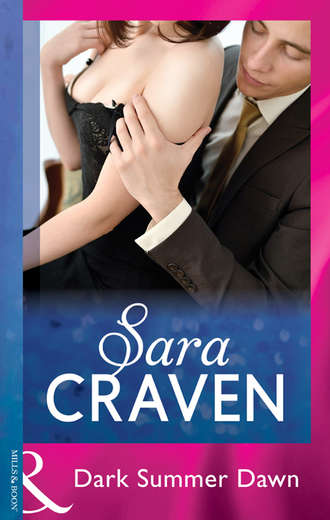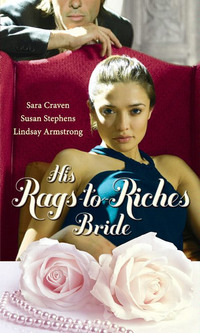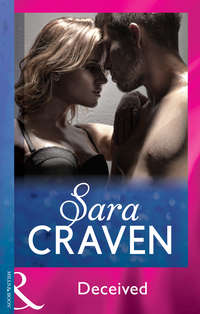
Полная версия
Dark Summer Dawn

Dark Summer Dawn
Sara Craven

www.millsandboon.co.uk
Former journalist SARA CRAVEN published her first novel ‘Garden of Dreams’ for Mills & Boon in 1975. Apart from her writing (naturally!) her passions include reading, bridge, Italian cities, Greek islands, the French language and countryside, and her rescue Jack Russell/cross Button. She has appeared on several TV quiz shows and in 1997 became UK TV Mastermind champion. She lives near her family in Warwickshire – Shakespeare country.
TABLE OF CONTENTS
COVER
TITLE PAGE
ABOUT THE AUTHOR
CHAPTER ONE
CHAPTER TWO
CHAPTER THREE
CHAPTER FOUR
CHAPTER FIVE
CHAPTER SIX
CHAPTER SEVEN
CHAPTER EIGHT
CHAPTER NINE
CHAPTER TEN
ENDPAGE
COPYRIGHT
CHAPTER ONE
SHE was so bone-weary that she could hardly fit her key into the lock of the front door. It had been a long and turbulent flight, and the landing had been delayed through fog. One of the younger girls had become almost hysterical with fright, and it had been Lisa who had sat with her and soothed her while the plane made its ultimate, laborious descent.
She closed the door behind her thankfully and stood for a moment, staring round the living room. It was scrupulously clean and tidy—Mrs Hargreaves had seen to that—but the air smelled stale and unused. Lisa opened the window and let the January evening air stream into the room.
Her body shivered a little, still nostalgic for the sultry heat of the Caribbean sun she had just left, but her tired mind welcomed the invigoration of the icy draught.
A pile of mail awaited her attention on the small dining table by the window, and she had picked up more envelopes from the mat on her way through, but that could wait until tomorrow, she thought, kicking her shoes off. She needed a bath too. She felt cramped and sticky after the long hours in the plane, and then the taxi ride, crammed in with the other girls—but that could wait as well.
She walked into the bedroom, shedding her clothes as she went. The bed waited, its covers invitingly turned back, and her nightdress arranged in a fan shape, because Mrs Hargreaves had once been a chambermaid in a hotel, but Lisa didn’t even bother with that. She simply cleaned off her make-up—the routine she would follow if she was dying, she’d often thought—and fell, naked, into bed and into profound sleep.
She stirred once or twice, even opened her eyes, disturbed by noises in the street outside, a vacuum cleaner operating in the flat above, but she did not wake. When eventually she moved, stretched luxuriously and sat up, yawning, a glance at her watch showed she had slept the clock round. She thought ruefully, ‘I must be getting old.’ She’d felt old on the trip. All the other models had been in their teens; she’d been the only twenty-year-old.
Jos had laughed at her. ‘Found any grey hairs?’ he’d jeered. ‘Don’t complain to Myra about your age. She’s two years older than you.’
Lisa didn’t bother to state the obvious—that Myra was not and never would be a photographic model. She’d been a plump, pretty art student with gentle eyes and a mass of waving hair when Jos had met and married her, and marriage and a baby hadn’t changed her, but neither her face nor her figure would ever be her fortune.
Nor are mine, Lisa thought as she got out of bed, but they’re a living.
She glanced at herself in the full-length mirror as she padded into the bathroom and turned on the shower. There was nothing narcissistic in the action, but it probably wasn’t strictly necessary either. She had been in the West Indies with the others to model a range of very expensive swim-wear for a glossy magazine, and Lisa would soon have heard it from Jos if her slender body had gained or lost a vital pound anywhere. He had known her ever since she came to London looking for work two years before, and he’d taught her all she’d ever needed to know about facing a camera.
Not that she had ever seriously planned to become a model. She had never regarded her own looks as startling in any way, yet it was Jos who had first suggested the idea while she was still at school. He had come to the school to visit his cousin Dinah, who was Lisa’s greatest friend, and taken them both out to lunch. He was already a name in the photographic world, and Lisa wouldn’t have been human if she hadn’t been flattered by his interest, but at the same time she had seen her life running along very different lines.
It had been thanks to Jos that she had earned her first big break when she had been featured as the Amber Girl, advertising a new and exclusive cosmetic range. With her long golden brown hair, and wide hazel eyes which could take on green or golden tones depending on what colour she was wearing, Lisa had been a natural choice on which to centre the campaign. It had been an amazing experience for her. Special exotic costumes in shades of gold and amber had been designed for her, and the effect against the faint honey tan of her skin had been stunning. They had ranged from sinuous and semi-transparent caftans in silks and chiffons to the briefest concessions to decency in gold mesh and beading. Her face had stared from the pages of every glossy magazine, her eyes seeming to widen endlessly, while the delicate mouth curled a little, giving an effect which was at the same time innocent and sensual. The French fashion house which was launching the Amber range had been ecstatic, and sales had boomed.
But Jos had seriously advised her against taking part in any follow-up.
‘You’ll be typed if you do. Everyone will associate you with Amber and nothing else,’ he’d warned. ‘That’s fine for a while, but what happens when you get tired of it—or they do?’
She had taken his advice and never regretted it, because offers of work had come flooding in. But she liked working with Jos best. He had been the first to recognise her potential, and she would always be grateful for that. She’d been lucky. From stories she had heard from other girls, the fringes of the modelling profession were grubby in the extreme.
Finding the flat had been another piece of luck, she thought, stepping under the shower and letting the warm water cascade through her hair and down her body. It wasn’t cheap, but with Dinah, who shared it with her, landing a part in a long-running West End comedy almost as soon as she had left drama school, they had few financial problems.
Lisa reached for the shampoo and began to lather her hair. Her long sleep had done her good, and now she was hungry. Presently she would make herself a meal, and open her letters while she ate and dried her hair. Not that there would be anything very exciting in her mail, she reminded herself. Most homecomings were attended by bills and circulars. But she had other friends, besides Dinah, with whom she maintained an infrequent but faithful correspondence. Clare might have had her baby by now, she reflected, and Frances could have made up her mind whether or not she wanted that job in the States.
She rinsed her hair and turned off the shower. She dried herself and put on an elderly white towelling bathrobe. It wasn’t a glamorous piece of nightwear, but it was reasonably cosy for the sort of evening she had in mind, relaxing by the fire and maybe later listening to a radio play.
Mrs Hargreaves had stocked the fridge and the vegetable rack on her last visit, so Lisa, a towel swathed round her wet hair, grilled herself a steak and made a salad to go with it.
She hadn’t an enormous appetite—it had been something which had alarmed her stepfather when she had first gone to live at Stoniscliffe. ‘Doesn’t eat enough to keep a fly alive,’ he’d grumbled at each mealtime. But she liked simple food, well cooked, and was thankful she didn’t have to fight a weight problem.
When she had eaten and cleared away, she carried her coffee over to the sofa and curled up with her letters. As she had suspected, most of them were in buff envelopes, and she grimaced slightly as she turned them over. And then she saw there was a letter from Julie.
Lisa stared down at the square white envelope, and the familiar sprawling handwriting, her brows drawing together in a swift frown. Instinct told her that Julie would only be writing to her because of some kind of crisis, and reminded her that it would probably be something she would rather not know about. Such knowledge in the past had always worked to her disadvantage.
Unless it was about Chas, she thought, a sudden feeling of panic seizing her. He hadn’t been well, she knew from his own rare letters, and it had been a while since she’d heard from him, apart from the usual formal exchange of cards at Christmas.
She went on looking at the unopened envelope, concern for Chas battling with a desire to tear Julie’s letter into small pieces unread. She owed her young stepsister nothing, she thought vehemently. In fact, the boot was very much on the other foot.
But Chas was different. She had never met with anything but kindness and consideration from him, and she owed him something in return. Oh, not the money he had paid into her bank account each quarter, she thought fiercely, although she could have repaid it easily because she never touched it. When she had left Stoniscliffe, she had sworn she would never accept another penny of Riderwood money. She would be independent of them all, especially ….
She stopped abruptly, closing her mind, wiping it clean like an unwanted tape. She tried not to think of Stoniscliffe ever, because it was forbidden territory to her now. She had promised herself she would never go back, although her conscience would not allow her to lose all contact with Chas who had been deeply wounded by her decision to leave. And the awful truth was it had been impossible to tell him why she had to go.
Slowly and reluctantly she opened the envelope and extracted the sheet of notepaper inside.
‘Darling Lisa.’ Julie’s exuberant writing straggled halfway across the page. ‘Guess what? I’m going to be married! I’m actually going to amaze everyone and do the right thing for once. It’s Tony Bainbridge, of course, and Father is over the moon. The wedding is next month, and I want you to be my bridesmaid—maid of honour—what the hell! Please, please say you will, darling. The arrangements are driving me up the wall already, and Mama Bainbridge is threatening to take over. Please come home, Lisa. I need you. Surely you can have some time off. I’ll expect to hear from you. Love, Julie.’
The crunch came at the end, obviously scribbled as an afterthought. ‘Dane, of course, is going to give me away.’
Lisa sat very still, staring down at the sheet of paper, then her hand closed convulsively on it, reducing it to a crumpled ball.
She said aloud, ‘No,’ and then raising her voice slightly, ‘God, no!’
She was shivering suddenly and she pulled the dressing gown further around her, and turned the gas fire full on, just as if the chill which had enveloped her was a purely physical one and could be dispelled by such homely means.
Running her tongue round dry lips, she made herself think of Julie. Of Julie going to be married to the young man Chas had always hoped would be her husband. Julie’s decision might not amaze everyone as she had jokingly predicted, but Lisa found it hard to accept, just the same. It had been two years since she’d seen Julie, and she supposed her stepsister could have matured considerably in that time. But remembering the young, wild Julie she had always known, it seemed almost incredible.
She tried to remember Tony Bainbridge. He had always been there when they were growing up, because his father owned the neighbouring estate, but he had never made a very lasting impression on Lisa. He was fair, she thought, pleasant and undeniably wealthy. Quite a catch for most girls. But for Julie, daughter of a wealthy industrialist herself—spoiled, wilful Julie?
Lisa moved her shoulders wearily. Well, love sometimes made strange matches. And surely Julie, young, beautiful vibrant Julie, with her mass of dark curling hair, must be marrying for love, and not just because she knew that such a marriage had always been the sentimental wish of both families. Not even Julie would give way to such a mad impulse, she argued with herself, but she was not convinced.
Unwillingly, she smoothed out the letter and re-read it, trying to ignore the postscript. It was Julie’s usual breathless style, sprinkled with underlinings and exclamation marks, but was it the letter of a radiantly happy bride-to-be?
She closed her eyes. Since she was ten years old and had first gone to live at Stoniscliffe, she had protected Julie. That first night, still bewildered by the speed with which everything had happened, and struggling with the unfamiliarity of a strange bed in a strange room, she had been startled when her door opened. Julie had said plaintively, ‘Mrs Arkwright says I’m too old for a nightlight, but I’m frightened of the dark. May I get in with you? Please, Lisa, please!’
Lisa had spent an uncomfortable night. The bed wasn’t big enough for two and Julie wriggled. Next day Chas had roared with laughter, totally dismissing the housekeeper’s disapproval, and ordered Julie’s bed to be moved into Lisa’s room.
‘Told you, didn’t I?’ He turned to Lisa’s mother, his face beaming. ‘Told you they’d be sisters.’
Jennifer Riderwood had nodded, her eyes faintly troubled. Because she knew that having to share a room for the first time was only one of many adjustments Lisa would have to make in her new life.
She had been a widow for five years when she had had that unexpected Premium Bond win, and it couldn’t have happened at a better time. She hadn’t any particular skills. There was no career for her to fall back on when she was left alone with a small child to bring up. She had to take what work she could, and be thankful. She had to be thankful too that they had a roof over their heads, even if it did belong to her sister-in-law and her husband.
Clive and Enid Farrell were quite aware that it had been good of them to take Jennifer and her child into their home. After all, they’d been under no actual obligation, as they stressed whenever the subject was mentioned. They made it seem as if it had been a gesture of pure kindness, and only they and Jennifer knew that she paid a generous rent in order to be made to feel like a poor relation.
Yet it was never enough. Some of Lisa’s earliest memories were of hearing Aunt Enid complaining about inflation and rising prices. She’d had to learn to remember to switch off every light—‘Wasting electricity’ and how many inches of water were permissible at bathtime—‘Hot water has to be paid for, my girl.’ And she saw her mother’s face grow daily more defeated and tired.
Eventually Jennifer had to supplement her wages as a filing clerk by taking an evening job as a waitress, rarely arriving home before midnight. But basically she was a fragile woman and finally, inevitably she collapsed and had to be brought home, and Lisa could remember how angry Aunt Enid had been. There’d been much twitching of net curtains in the street of semi-detached houses where they lived as Jennifer had been carried up the path, and there’d been talk as well, because even as a child, Lisa had recognised that her aunt and uncle were not particularly liked by their neighbours.
But she had been forced to send for the doctor, and Dr Chalmers had spoken bluntly to Jennifer. ‘You need a break, my dear. A complete rest, well away from all this—yes, even away from your daughter. It won’t hurt her to do without you for a little while. I’m sure that would be her choice, rather than have to do without you permanently.’
There was no money for any kind of holiday. There would be even less money, now that Jennifer had to give up her evening job, so the Premium Bond seemed like a small miracle. It wasn’t a fortune, but it was enough to buy Lisa and herself some new clothes, and book a cruise in the Mediterranean—this on Dr Chalmers’ advice—and even have some left over for a rainy day.
Looking back, Lisa realised how grateful she and her mother should have been to the doctor who had practically frogmarched her mother round to the travel agency. He had known the Farrells for many years, and was quite well aware of the sort of pressure Jennifer would have to suffer unless she used her win for her own benefit.
As it was, there had been outraged glances and muttered remarks about ‘bone selfishness and greed.’ There were repairs needed to the roof of Number Thirty-Seven, and they’d thought that Jennifer might like to help—as it was her roof too.
But this time Jennifer was not going to allow herself to be bullied. She had booked her cruise and paid for it, and she was going to take it. And when it was over, and she was back with them, things were never the same again. It wasn’t just the fact that she was relaxed and sun-tanned and had put on some weight. There were other, subtler differences—a depth to her smile, and a dreaming look in her eyes when she thought she was unobserved.
And then Charles Riderwood had arrived at the house, tall, powerfully built, a square bluff face lent distinction by the greying hair at his temples.
He had smiled down at Lisa. ‘Hello, love.’ There was a faint North-country burr underlying his voice. ‘I’ve got a little girl, a couple of years younger than you.’
Lisa had smiled back a little uncertainly, but she had recognised the kindness in his eyes, and she also realised that he wanted her to like him, although she didn’t understand why.
Enlightenment was to come after his Jaguar car had driven away.
‘Brazen!’ Enid Farrell had stormed. ‘The very idea, allowing your—fancy man to come here. How dare you!’
Jennifer had flushed, but her voice had been calm. ‘Before you say any more, Enid, perhaps you ought to know that Charles and I are going to be married.’
‘Married?’ Enid’s voice had risen almost to a shriek. ‘A man you met on a cruise? Why, you know nothing about him. He could be married already—up to no good.’
Jennifer’s face had blossomed into a smile. ‘I know enough,’ she said. ‘He’s a widower. His wife died several years ago. He has a son of twenty-four and a daughter of eight. His work is something to do with electronics, and he lives in Yorkshire. Is there anything else you want to know?’
Enid Farrell looked outraged. ‘Why is the son so much older?’ she demanded accusingly.
‘I don’t know. Perhaps the little girl was an afterthought.’
Enid’s face had become more grimly disapproving than ever. It was clear she considered that after sixteen years people should be thinking of other things.
She continued to disapprove right up to the day of the wedding. Apart from Lisa, she and her husband were the only guests from Jennifer’s side. But there were a number of people at the register office who knew Charles Riderwood, and obviously liked him, and they all went on afterwards to the champagne reception he had arranged at the London hotel where he had a suite.
Someone was waiting for them there, a tall dark young man who rose slowly from one of the sofas and stood waiting, his hands resting lightly on his hips.
Charles had said on a sharp note of pleasure, ‘Dane, you managed to get here after all!’ He turned to Jennifer. ‘Come and meet your new son. He’s been in America on a postgraduate course or you’d have met him before.’
Dane Riderwood had said lightly, ‘It all goes to show I should never turn my back for a minute.’ He had stepped forward to shake Jennifer’s hand, and there had been a general laugh, but Lisa, hanging back hesitantly, had known instinctively that this stranger who was her stepbrother wasn’t amused. He was smiling, but his smile never reached his eyes. And when Charles drew Lisa forward, his hand warm and heavy on her shoulder, Dane’s eyes flickered over her with an indifference bordering on hostility. He had turned away almost at once, leaving Lisa thinking, ‘I don’t like him—and he doesn’t like us.’
She heard her mother say to her new husband, ‘He’s very like you,’ and she wanted very badly to cry out a denial, because surely Jennifer knew—could see that they weren’t a bit alike.
Oh, they were both tall and very dark, but Dane was a much leaner version of his burly father. His face was thinner too, its lines arrogant where Charles’ were genial. His eyes weren’t blue like his father’s either, but a wintry grey, and his mouth was hard.
She had been looking forward to seeing Stoniscliffe, the big grey stone house which her stepfather had told her about. She wanted to meet Julie too.
‘She’s been lonely for someone to play with,’ Chas had told her. ‘I daresay you’ve been a bit lonely too.’
But all the excitement, all the anticipation she had been feeling had been dampened by the arrival of this cold hostile stranger. She wasn’t sure she even wanted to go north to Stoniscliffe if he was going to be there.
She tried to forget about Dane Riderwood and enjoy the reception. People spoke kindly to her, and exclaimed admiringly about her long hair. Chas even gave her a sip of champagne, in spite of her mother’s laughing expostulations.
She was just beginning to enjoy herself when Aunt Enid came towards them. Jennifer and Lisa were standing on their own for a moment and she had obviously seized her opportunity.
‘Well, you’ve certainly done all right for yourself,’ she hissed to Jennifer. ‘Something to do with electronics indeed! You forgot to mention that he owned his own factory. I suppose you’ll be off north with never a backward glance, never a thought for the people who fed you and housed you when you had nothing.’
Lisa saw her mother go pale, saw all the pretty, happy, excited colour fade from her face. She said in a low voice, ‘Enid, please keep your voice down. I don’t expect you to believe me, but I didn’t know until today. Oh, I knew Chas wasn’t on the breadline, but all this—’ she paused and gave a little painful laugh—‘all this was as big a shock to me as it has been to you.’
‘Oh, of course,’ Enid Farrell sneered. ‘We always knew we weren’t good enough for you. Even my poor brother wasn’t that. You always did fancy yourself, with your airs and graces—too good to work or to want. Well, you’ll never have to bother about either again!’
Lisa flinched. There was real venom in Aunt Enid’s voice. It wasn’t just the habitual carping that she and her mother had silently learned to accept. And she had noticed something else too. Dane Riderwood was standing not too far away and judging by the expression of distaste on his face he had heard the tail end if not all of the sordid little passage.
She thought resentfully, ‘I wish he hadn’t heard. He doesn’t like us anyway, and now he’ll just think that we’re as horrible as she is.’
She saw her stepfather coming towards them, beaming, and Aunt Enid moved away then, and not long after that Lisa was relieved to see her and Uncle Clive leaving. All of a sudden she was glad she was going to Stoniscliffe because it meant, she hoped, that she would never see either of them again.
The reception seemed to go on for ever, and Lisa was tired of the new faces and voices going on endlessly above her head. After a while she wandered into the adjoining bedroom. There was a sofa there too, drawn across the window, and she curled up on it, lulled by the distant noise of traffic and the murmur of talk and laughter in the next room.
She didn’t know what woke her, but she opened her eyes, blinking drowsily to realise she was no longer alone in the room.








